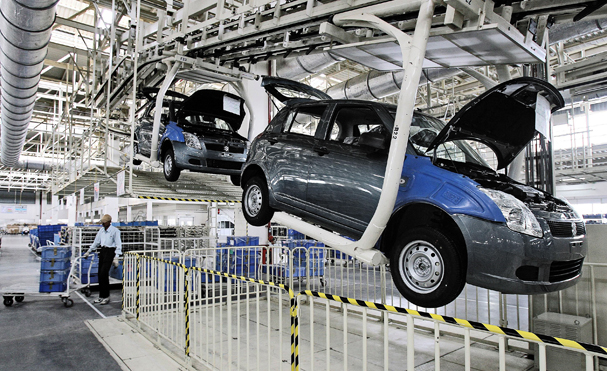3 What is responsible for the disparity in fees?
According to Aganga, those importers willing to subscribe to the auto policy programme have their fees unchanged so that they are able to import cars to fill demand gap rising from the production capacity and the demand for cars in the country.
Other applicable fees include 10 per cent tariff for Semi Knocked Down kits 2 that are imported at the easiest level of assembly, five per cent tariff for Semi Knocked Down kits 1 imported at a slightly higher level of assembly and the Completely Knock Down kits that will attract zero per cent duty because there will be a measure of local input.
4 Will prices of buying cars increase?
Advertisement
Yes and NO.
No — because all the manufacturers and assemblers of cars, including some of the major distributors and importers, have given an undertaking they will not increase their prices at all.
The federal government intends to continue monitoring the prices of cars every week, because the new policy should not lead to any price increase if the operators were to be fair to the consumers with an assurance that the local vehicle manufacturers and assemblers had enough capacity to meet the expected upsurge in demand for new cars and would not increase the prices of their products.
Advertisement
Yes – likely, because investigations show that not all importers are ready to abide by the undertaking, as they are cashing on the ignorance of panic buyers and selling their stocked-up cars in preparation for the implementation of the new policy at higher rate.
Also, importers who are not assembling cars in the country have accepted their fate to pay the 70 per cent. So when you buy from them, you have to pay more. Most of them have stocked up their garages already!
5 Is it just about car importation alone?
No, it is more about local production and jobs!
Advertisement
At full capacity, the Nigerian Automotive industry has the potential to create 70,000 skilled and semi-skilled jobs along with 210,000 indirect jobs in SMEs that will supply the assembly plants. Some 490,000 other jobs would also be created in the raw material supply industries.
To this end, the federal government intends to work with the Nigeria Universities Commission (NUC) to have Automotive Engineering in the curricula of universities, such as the University of Ibadan, Tafawa Balewa University in Bauchi, and Elezade University, who are already offering the programme to produce automotive engineers to support the industry in readiness for local production. There have been assurances that international standards would be maintained in the production process to ensure global competitiveness, as the Standards Organisation of Nigeria (SON) is already working on the standards required in the auto industry.
6 I want to buy a car, how does this affect me?
The government is discussing with local and international financial institutions on how to make the scheme achieve the aim of making made-in-Nigeria cars affordable through the new automotive credit purchase scheme.
Advertisement
With the arrangement, Nigerians will be able to purchase brand new cars assembled in the country without having to pay in full — from November 2014 — as payment spread over four to five years at single digit interest rate is anticipated.
Already, about 12 companies, including Nissan, Toyota, SCOA and Dana motors, have signified interest in participating in the scheme.
Advertisement
Let’s hope the Federal Government and its agencies will also subscribe to the Automotive Policy in their car purchases.
Advertisement
1 comments







Lets call a spade by its name. If you are not into car assemlage in the country the effective duty on the importation of fully built cars on fairly used is 70 per cent upon the approval of this policy! Chikena.